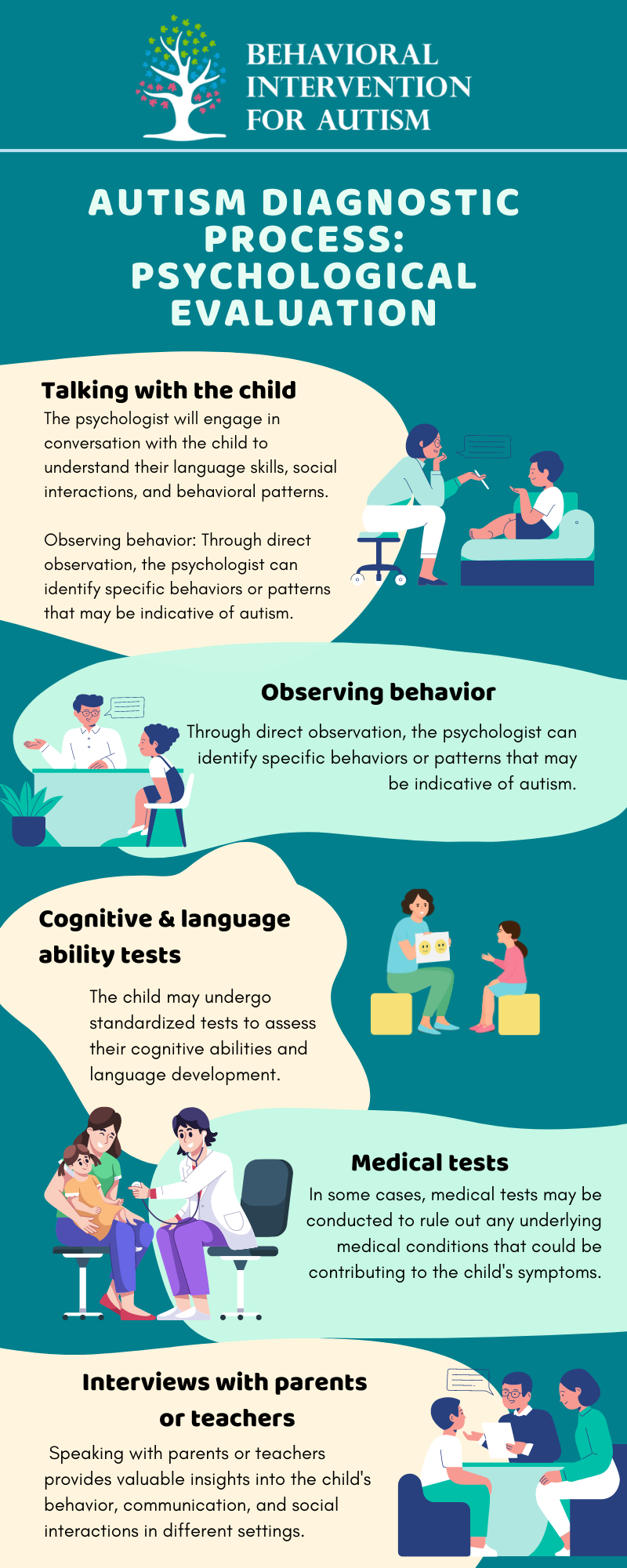Top 10 points about how an Autism Therapist's intervention supports social growth in autism
Top 10 points about how an Autism Therapist's intervention supports social growth in autism
Blog Article
Trick Symptoms And Signs to Acknowledge in Individuals With Behavior Autism
When you encounter someone with behavioral autism, acknowledging crucial symptoms and signs is necessary. You could see obstacles in social communications and communication, as well as a strong demand for regimens. Furthermore, sensory level of sensitivities can cause overwhelming experiences. Understanding these qualities can boost your assistance and treatments, however there's even more to discover about exactly how these actions show up in day-to-day situations. Allow's discover what these signs really look like.
Obstacles in Social Communications
When you interact with somebody on the autism range, you might observe they battle with social hints and interaction. These challenges can make social communications really feel overwhelming for them.
When they do engage, they may chat concerning their interests in terrific information without discovering if you're interested. Comprehending these difficulties can aid you come close to interactions with empathy and patience, fostering a more comfortable atmosphere for both of you.
Problem With Verbal and Non-Verbal Communication

Non-verbal communication can be even extra difficult. You could see a lack of eye contact or minimal use of motions, which can make interactions really feel uncomfortable. Faces might not always straighten with the discussion, resulting in complication about their sensations. Acknowledging these indicators is vital, as it helps you much better support and involve with people on the autism spectrum. By recognizing their communication obstacles, you can foster extra significant links and supply an extra helpful setting.
Recurring Actions and Routines
Interaction challenges often go along with other indicators of autism, such as repetitive actions and a solid preference for routines. You may see that individuals with autism typically take part in particular, repetitive activities, like hand-flapping, shaking, or duplicating expressions. These actions can offer comfort and a sense of control in an usually frustrating globe.
Routines are equally essential; numerous individuals prosper when they adhere to an organized routine. You may find that adjustments to these regimens can result in significant distress. For instance, if they have a daily ritual of eating breakfast at a certain time or following a particular course to college, any type of interruption can cause stress and anxiety.
Identifying these patterns assists you comprehend their behavior and give assistance. By fitting their need for regular and enabling repetitive activities, you can develop a much more comfy atmosphere that relieves their difficulties.
Sensory Level Of Sensitivities

Usual Sensory Triggers
Sensory sensitivities can substantially impact life for individuals with autism, as specific stimulations typically trigger overwhelming reactions. Usual sensory triggers consist of loud noises, brilliant lights, and solid scents. You might discover that abrupt sounds, like sirens or alarm systems, create anxiety or distress. Fluorescent lighting in shops can really feel rough and uneasy. Textures can likewise play a substantial role; rough materials or particular food textures may be unbearable for you. Furthermore, crowded areas can bewilder your senses, making it difficult to focus or kick back. Recognizing these triggers can aid you manage your setting much better. By knowing what affects you, you can take steps to reduce pain and improve your daily experiences.
Behavior Responses Explained
Understanding your behavioral feedbacks to sensory sensitivities is important, as they frequently reveal exactly how you connect with the world. You might additionally discover on your own seeking certain sensory experiences, like deep stress or quiet settings, to help ground on your own. Identifying these patterns helps you comprehend your requirements much better and can guide how you interact them to others.
Coping Approaches Summary
Identifying your sensory level of sensitivities is just the primary step; now it's time to discover coping approaches that can help you manage those experiences properly. Beginning by producing a sensory toolkit tailored to your requirements. This can consist of noise-canceling headphones, fidget playthings, or relaxing aromas. Developing an organized regimen can likewise supply predictability, lowering anxiety around see here now sensory overload. When you feel overwhelmed, take breaks in a quiet space to collect yourself. Exercising mindfulness strategies such as deep breathing can assist ground you in the moment. Furthermore, interact your requirements with those around you; having encouraging friends and family members can make a massive difference. Remember, finding what works ideal for you may take some time, so be open and patient to attempting new methods.
Restricted Interests and Emphasis
While lots of people establish a wide variety of passions, those with autism commonly show restricted passions and an extreme concentrate on specific topics. You might observe that a person with autism can spend hours delving right into their favored topic, whether it's a particular kind of train, a certain film, or a clinical idea. This intense emphasis isn't just a pastime; it can become a central component of their identity and social communications.
You might find that discussions rotate around these rate of interests, and they might struggle to engage in wider topics. By recognizing and recognizing these restricted rate of interests, you can promote an encouraging atmosphere where they really feel valued and understood, allowing for more purposeful connections and interactions.
Psychological Law Difficulties
Individuals with autism frequently face challenges in psychological law, which can be affected by their intense concentrate on specific interests. You might notice that when an individual is deeply involved in a favored activity, they can experience strong emotions, whether exhilaration or stress. This strength often makes it difficult for them to shift gears or manage their feelings when points do not go as prepared.

Variability in Developmental Turning Points
When it comes to developmental turning points, you'll discover that individuals with autism typically reveal a large variety of irregularity. You could see a youngster succeed in language abilities but struggle with social interactions.
It's necessary to identify that each person's trip is special. Some might establish complicated skills early, only to deal with obstacles later. Others could take longer to accomplish fundamental milestones however after that flourish in particular areas. Observing these patterns can aid you recognize their strengths and needs much better.
Regularly Asked Concerns
Exactly How Is Autism Identified in Children and Grownups?
To identify autism in adults and children, specialists examine habits, interaction abilities, and social communications. They often make use of standardized tests, meetings, and observations to establish if a specific satisfies the criteria for autism range disorder.
Exist Different Sorts Of Autism Spectrum Disorders?
Yes, there are various sorts of autism spectrum problems, consisting of Asperger's syndrome and prevalent developmental disorder-not otherwise defined. Each type differs in extent and qualities, so recognizing these distinctions can aid you better assistance people with autism.
What Therapies Work for People With Autism?
When considering efficient therapies for people with autism, you'll find choices like Applied Actions Analysis, Look At This speech therapy, and job-related treatment. Each method can aid improve communication, social abilities, and day-to-day working customized to individual needs.
Can Individuals With Autism Lead Independent Lives?
Yes, people with autism can lead independent lives. With the appropriate support, skills training, and sources, you can aid them develop self-sufficiency, manage everyday jobs, and thrive in different settings, cultivating their independence.
How Can Households Support Enjoyed Ones With Autism?
You can sustain your loved ones with autism by creating a structured environment, urging their passions, practicing patience, fostering communication, and promoting social skills. Celebrate their achievements, no matter exactly how little, and develop a helpful neighborhood.
Although lots of people on the autism range can recognize and utilize language, they often face significant article challenges with both verbal and non-verbal interaction. Recognizing these indications is vital, as it assists you much better support and engage with people on the autism spectrum. You may notice that people with autism typically engage in particular, repeated activities, like hand-flapping, rocking, or duplicating expressions.Sensory level of sensitivities can substantially influence day-to-day life for individuals with autism, as specific stimuli usually set off frustrating responses.When it comes to developing milestones, you'll see that individuals with autism often reveal a vast variety of irregularity.
Report this page